Pace University’s GenCyber teacher workshop has completed its third year! The NSA and NSF-funded program, organized and run by the Seidenberg School, took place from July 13-21 and involved a wonderful cohort of high school teachers from across the nation attending lectures, discussions, lab exercises and activities pertaining to topics in cybersecurity.

Twenty-three high school teachers attended the Pace University Pleasantville campus to learn fundamental cybersecurity concepts and to study new resources and methods to facilitate integration of cybersecurity material into their class curricula or after-school activities.
Workshop participants were introduced to cybersecurity first principles, cryptography, web security, access control, biometrics, and cybersecurity analytics. The curriculum, designed and delivered by Seidenberg faculty and staff, was based on a combination of interpersonal, intrapersonal and kinesthetic learning activities that aimed to ensure participants got the most from their time at Pace University.

The GenCyber program is part of Seidenberg’s outreach efforts to infuse STEM and cybersecurity education into high school classrooms. As a National Center of Academic Excellence in Cyber Defense Education, Pace strives to prepare the next generation of cybersecurity professionals for the challenges of the future. Through programs like GenCyber, Pace University supports teachers across the country in teaching the fundamentals to their students.
GenCyber participant Ron Conwell, who teaches Career and Technical Education at Clarkson Community School is Clarkston, MI, said: “Of the professional development experiences I have been to, this rises to the top just based on the amount of student engagement experiences that we were able to participate and engage in. We got to actually use [Raspberry] Pis, actually do the labs, and engage in the experiences ourselves rather than have to focus on just taking notes while other people talked.”
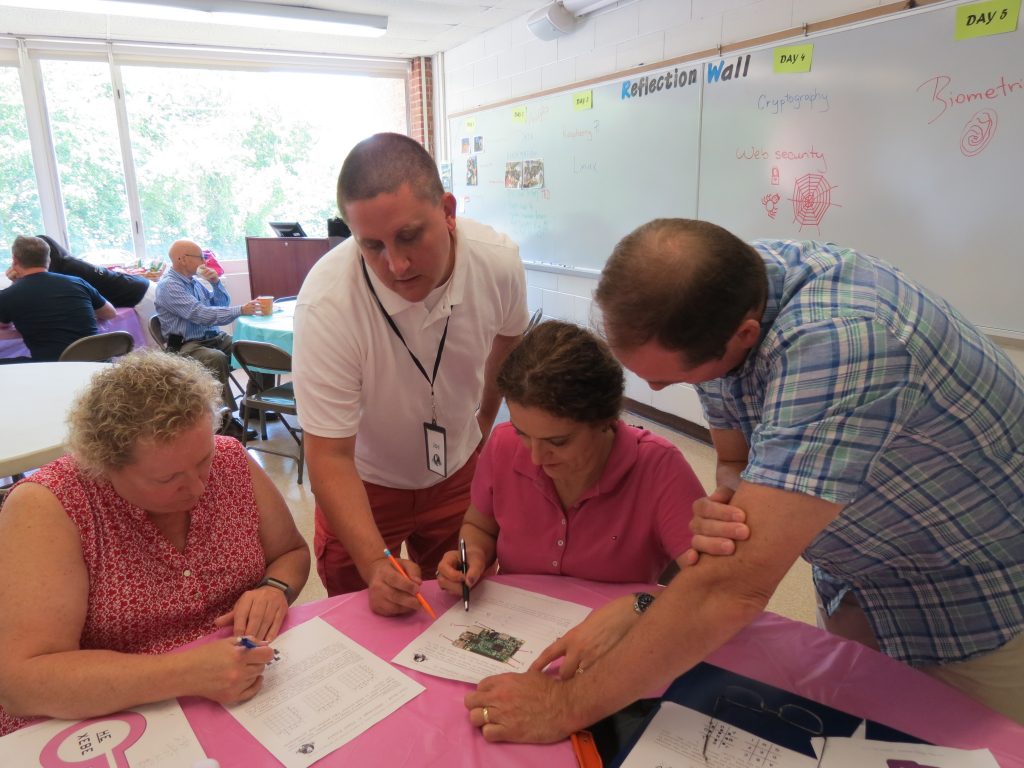
Ed McGinnis, who teaches Computer Science at St. George’s School in Newport, RI, agreed. “There were lots of resources and lots of info received. We were given links and tangible things to take home to use immediately in the classroom.”
Andreea Cotoranu, Assistant Dean of Academic Innovation and program director said that “through Pace GenCyber we aim to educate high school teachers about cybersecurity. Curricula taught in high schools is particularly well suited for integration of cybersecurity, since cybersecurity problems can often be reduced to the fundamentals of mathematics and computer science.
“Through the Pace GenCyber curriculum, we not only teach cybersecurity, but we also showcase the connections between cybersecurity topics and the participants’ teaching disciplines, as well as provide the tools needed to infuse the material into the classroom. Pace GenCyber is more than just a summer workshop, it is a community of faculty, students, teachers, alumni, government and corporate leaders who contribute to shaping the future of cybersecurity.”
GenCyber is made possible through funding from the National Science Foundation and the National Security Agency. The 2017 Pace University GenCyber program was designed and administered by Andreea Cotoranu (Program Director) and Dr. Li-Chiou Chen (Lead Instructor), with teaching support from Seidenberg School faculty Dr. Charles Tappert, Dr. Yegin Genc, and computer science high school teacher Jigar Jadav (Mamaroneck High School). Credit is also due to Barbara Woodworth and Jill Olimpieri, as well as Seidenberg students Tianyu Wang, Elizabeth Molloy, Kaitlyn Bestenheider, Steven Porras and Tristan Still.


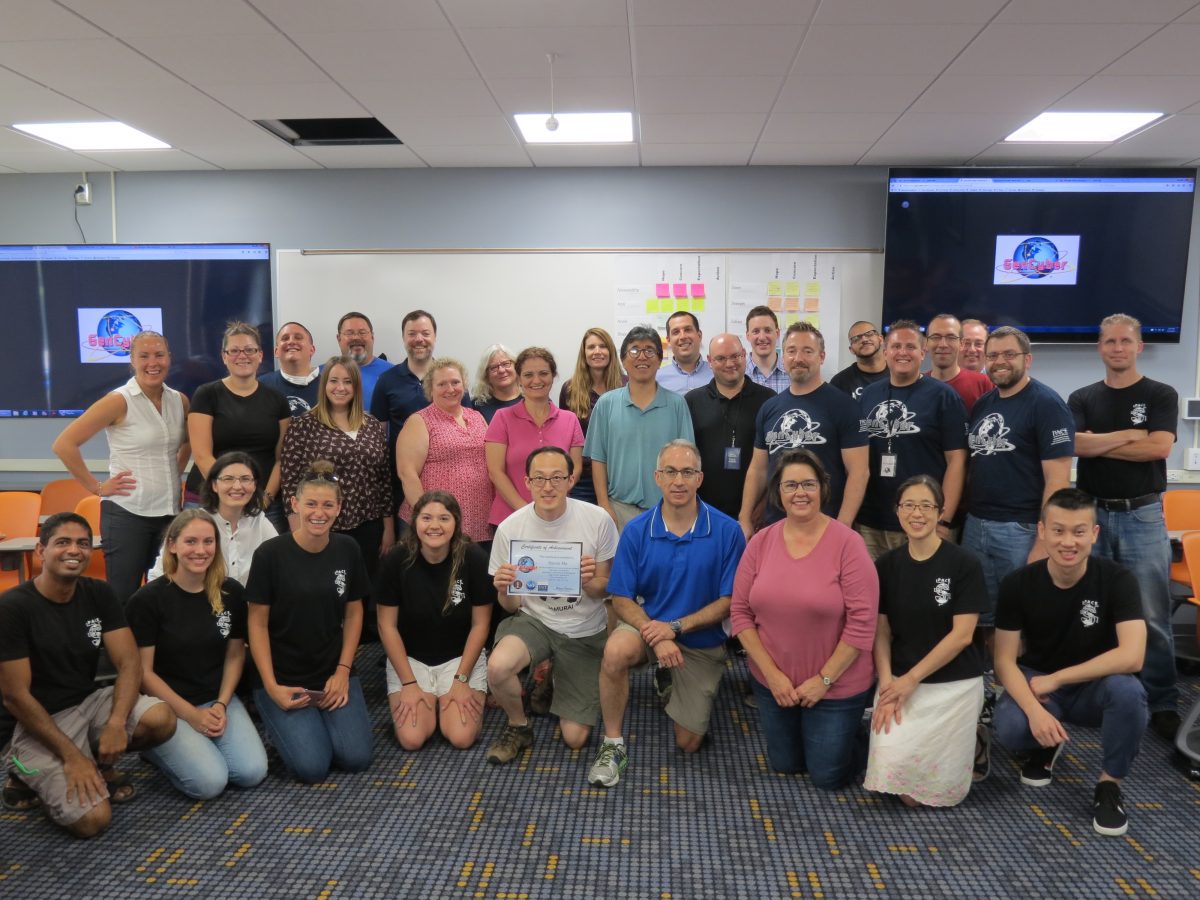
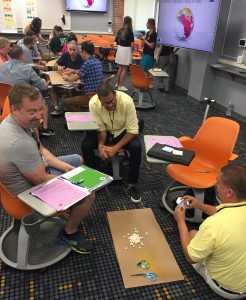

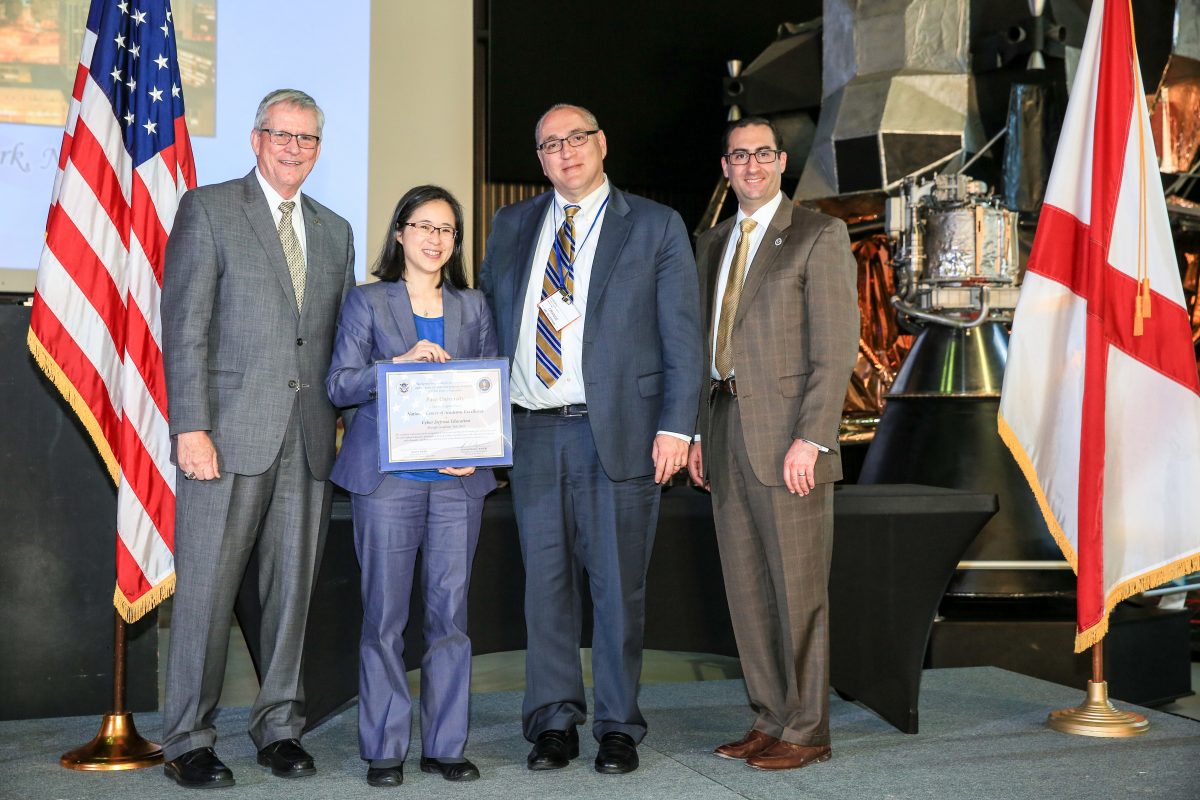
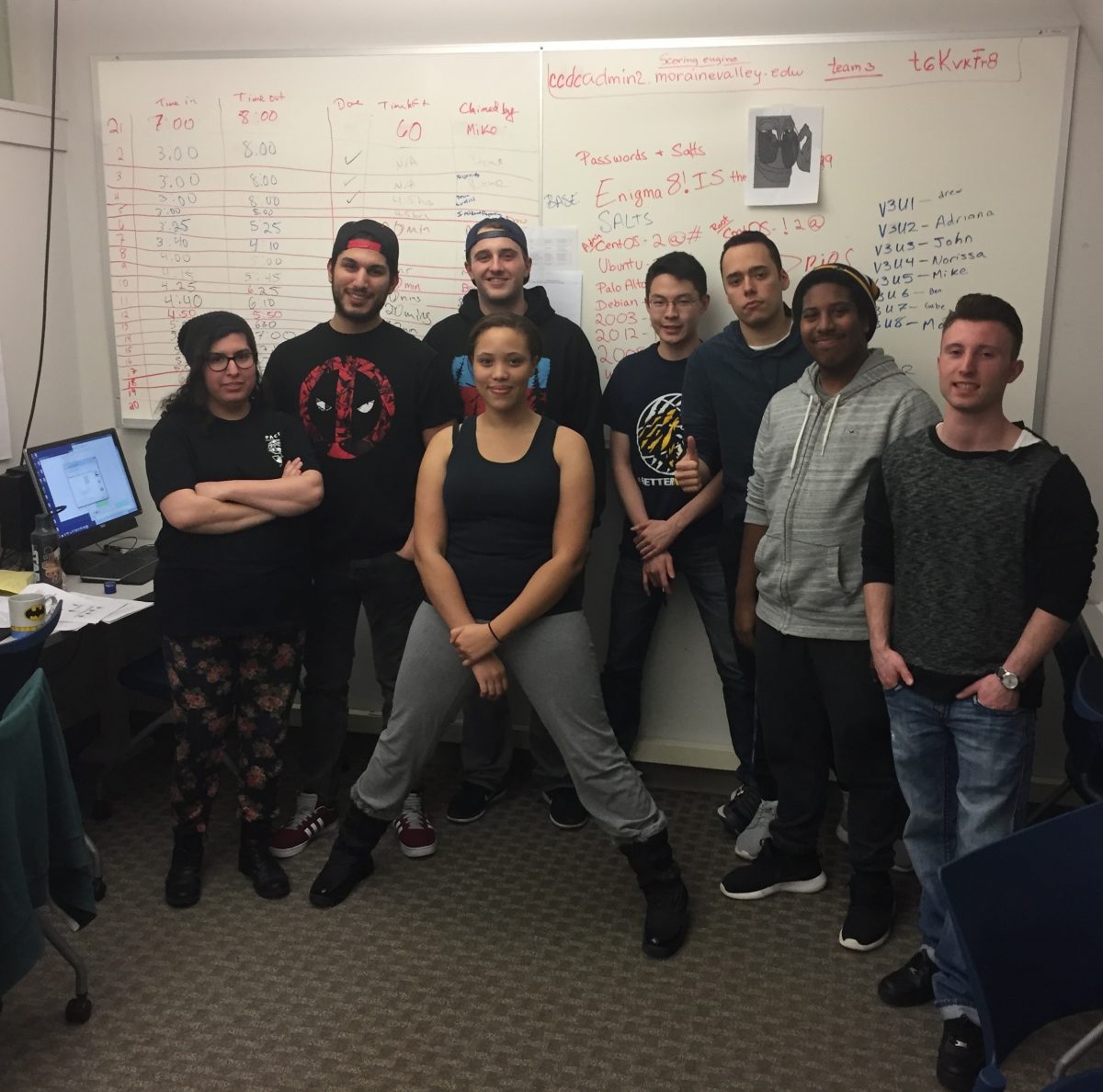


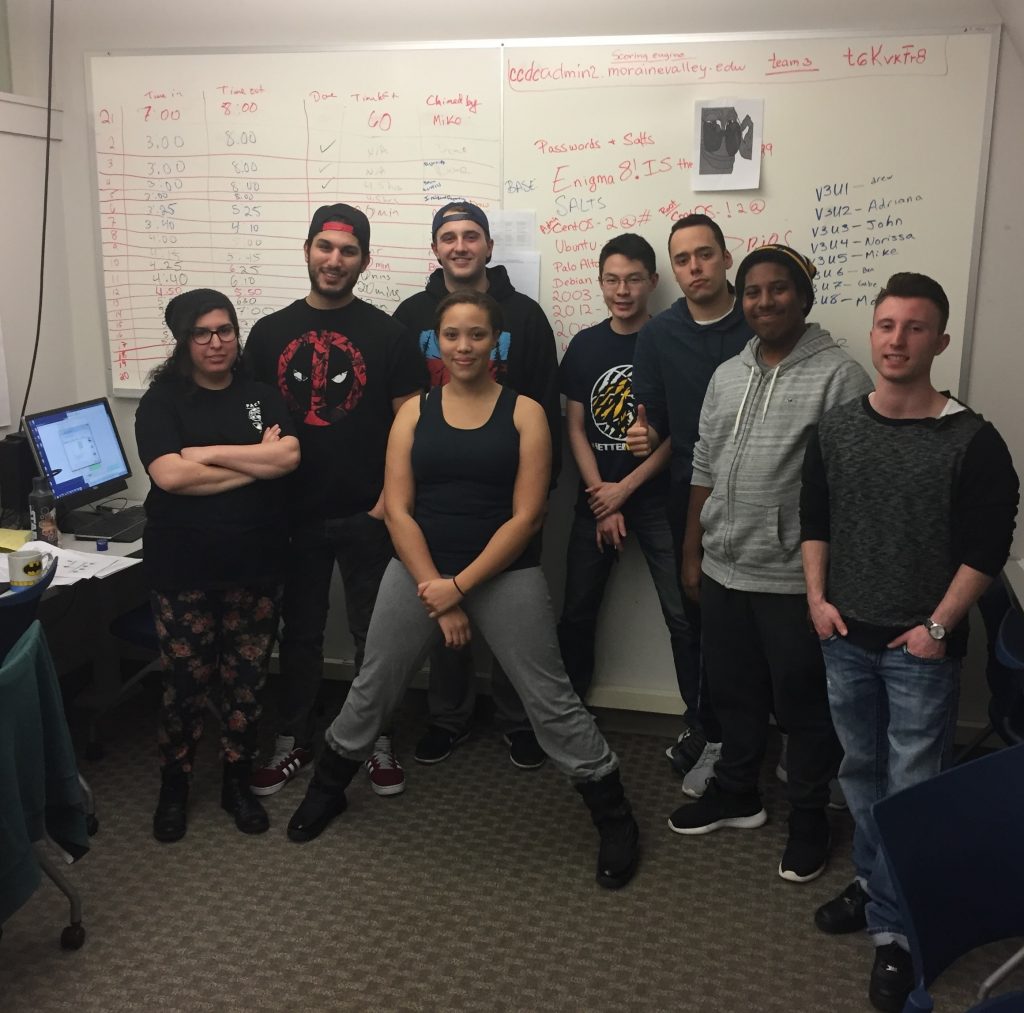
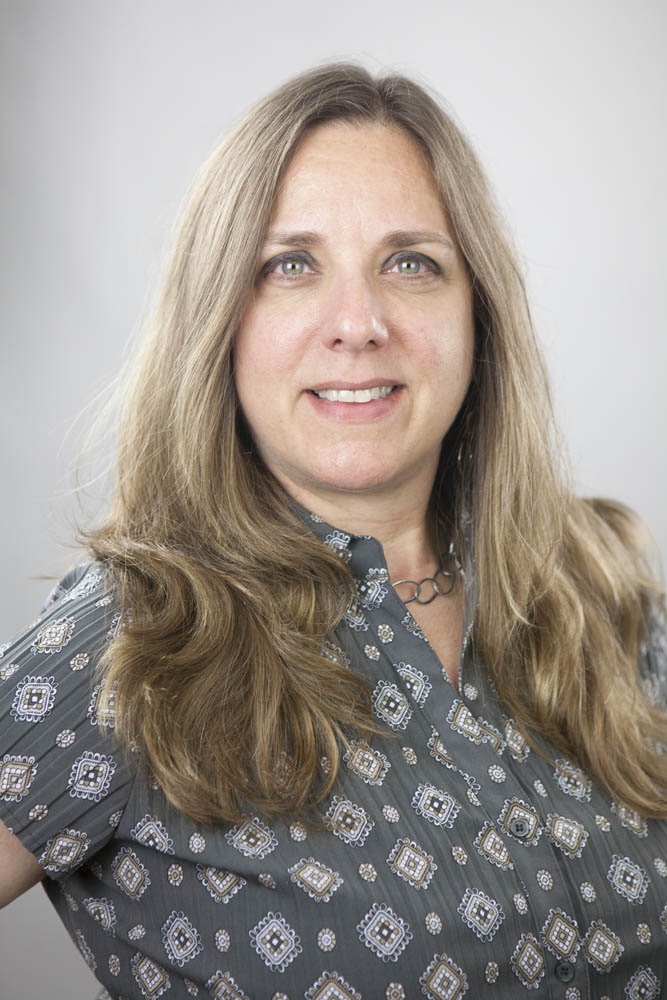
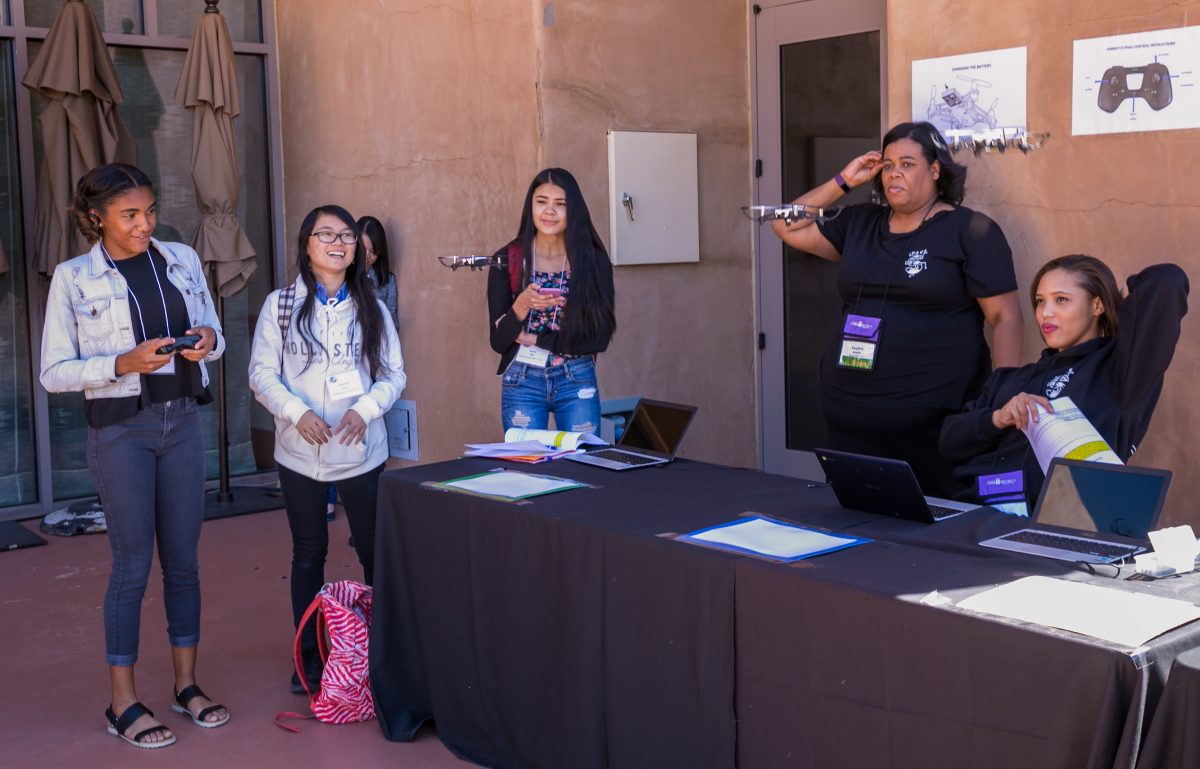
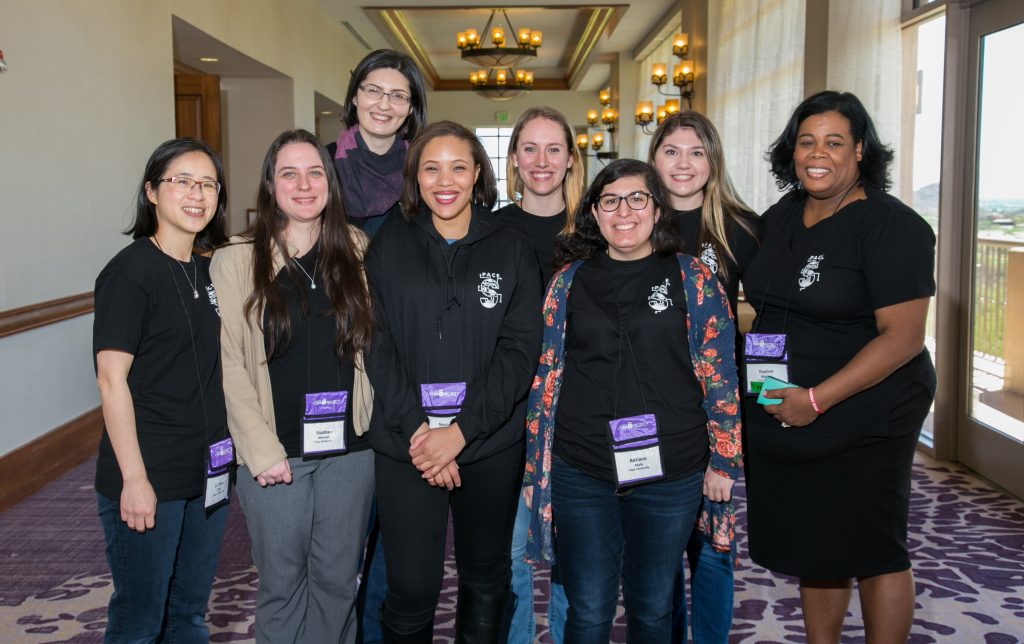
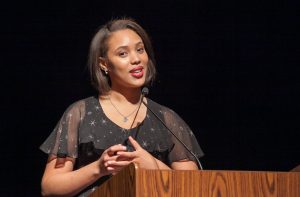 Seidenberg was also represented on the conference main stage! Norissa Lamaute gave a lightning talk on Musical Cryptography. Norissa’s research implements musical theory to create a consonant cipher that allows for the exchange of secret messages. This project also includes the work of Alexa Piccoli (
Seidenberg was also represented on the conference main stage! Norissa Lamaute gave a lightning talk on Musical Cryptography. Norissa’s research implements musical theory to create a consonant cipher that allows for the exchange of secret messages. This project also includes the work of Alexa Piccoli (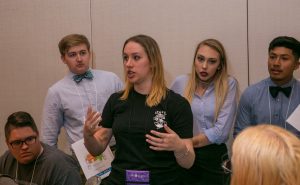 Lizzie Molloy also found inspiration at the conference. “My WiCyS experience is something very hard to put into words, not because it wasn’t what I was expecting, it was everything I was expecting and more. […] One of my biggest takeaways from this event was the strong bond I createed with my fellow colleagues. [Together] we realized we can do things we always wanted to do and more. This experience has helped me shape my academic and professional future in many ways. There are more experiences and opportunities available that I never thought were even possible.”
Lizzie Molloy also found inspiration at the conference. “My WiCyS experience is something very hard to put into words, not because it wasn’t what I was expecting, it was everything I was expecting and more. […] One of my biggest takeaways from this event was the strong bond I createed with my fellow colleagues. [Together] we realized we can do things we always wanted to do and more. This experience has helped me shape my academic and professional future in many ways. There are more experiences and opportunities available that I never thought were even possible.”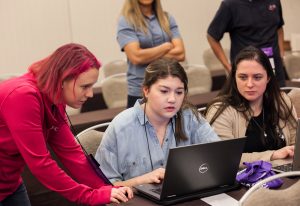 Now that the
Now that the